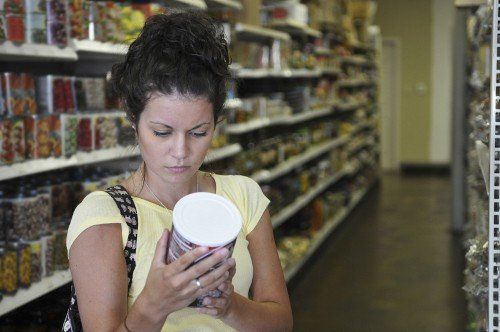NPA Joins Group Seeking to Amend Nationwide Labeling Regulations to Eliminate the Prevalence of Various “Unfounded” and “Unwarranted” State-Specific Warning Labels
The Coalition for Accurate Product Labels is asking Congress to amend the 1967 Fair Packaging and Labeling Act (FPLA) in order to establish a federal standard that would require that labeling requirements and warnings be based on risk potential and scientific evidence.
Photo © iStockphoto.com/dlewis33

The Natural Products Association (NPA; Washington, DC) is joining the Coalition for Accurate Product Labels (CAPL), a newly forged group whose goal is to combat what it says is a growing prevalence of “unfounded” and “unwarranted” state-specific warning labels and other labeling requirements. More than 60 industry groups, including NPA, the Grocery Manufacturers Association, and the Corn Refiners Association, have joined the coalition, which is asking Congress to amend the 1966 Fair Packaging and Labeling Act (FPLA) in order to establish a federal standard that would require that labeling requirements and warnings be based on risk potential and scientific evidence.
CAPL is proposing what it calls the Accurate Labels Act, an amendment of the existing Fair Packaging and Labeling Act. The Coalition says that the existing Fair Packaging and Labeling Act is insufficient to protect consumers from incorrect labeling and misrepresented products. The Fair Packaging and Labeling Act, which was enacted in 1967, directs FTC and FDA to require that all “consumer commodities” disclose basic information such as net contents, identity of the commodity, and the name and place of business of the product’s manufacturer, packager, or distributor. In addition, the Act authorizes “additional regulations where necessary,” in order to prevent consumer deception.
The coalition points to a rise in numerous, individual state-enacted labeling requirements, stating that these “inaccurate labels are costly and confusing to consumers.” According to the coalition, “in 2017, 30 proposals in 11 different states required warning labels or ingredient listings that go beyond national standards related to a variety of common consumer products.” Examples it provides include: 1) sugar-related warning labels in New York, San Francisco, and Baltimore; 2) warnings on cell phones in states such as Hawaii-“despite,” the coalition states, “the weight of scientific evidence that cell phone use is safe”; and 3) the highly cited California Prop 65 requirements for warning labels covering nearly 900 substances, a law which the coalition says “often relies on questionable science and unrealistic exposure levels.”
The Coalition states that these regulations create current “bureaucratic hurdles and the cost of printing separate packaging” that can keep businesses from expanding and selling products in multiple states. In addition, it says, it can be difficult for farmers and small businesses to keep up with changing label requirements based on those “unfounded warnings or ingredient mandates.”
The coalition also questions the soundness of many of these state-initiated regulations. As such, the Coalition is proposing that Congress amend the Fair Packaging and Labeling Act to include additional criteria for such labeling requirements. The Accurate Labels Act the group has put forth emphasizes that states must be required to “establish science-based criteria for all additional state labeling requirements.” States that meet the criteria, the coalition says, could then enact their own ingredient listing or labeling programs. The coalition requests that the revised Act “ensure that covered product information is risk-based,” through warning labels indicating where there are legitimate risks associated with an ingredient.
Further, the coalition proposes that Congress allow state-mandated product information to be provided via “smart labels,” both on smartphones and on websites, as a way to ease restrictions on the packaging labels. According to the coalition’s own survey data, 83% of Americans support smart labels, which it says would help to keep consumers up to date about ingredients and warnings.
Daniel Fabricant, president, CEO, NPA, stated in a press release that existing warning label programs currently in place in some states may be doing business more harm than good. “Unfounded warning label programs like those in California only make product labels more confusing for consumers,” he said. “Congress must act to protect consumers and put an end to expensive lawsuits and unnecessary new regulatory burdens that are difficult for small businesses to manage.” California’s labeling program currently requires warnings on any product that contains one of more than 900 substances, including Aloe vera and other naturally occurring ingredients, NPA points out.
Fabricant stated that NPA chose to join the Coalition because “consumers have a right to know what is in the products they use each and every day, especially when it comes to making decisions about taking products to support their health.”
Also read:
Would the Safe and Accurate Food Labeling Act's Non-GMO Label Overlap with USDA's Organic Seal?
Suing over Empty Space: Why Lawsuits over Slack Fill in Packaging Are Growing










